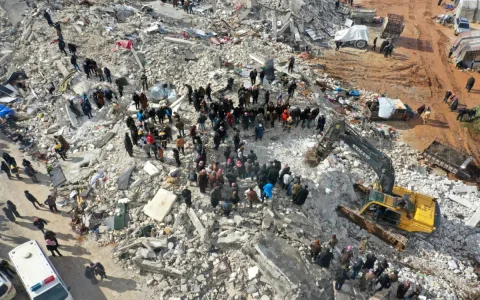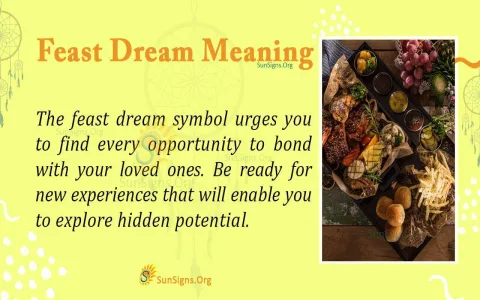How I Started Interpreting The Ground Moving
Most people, when they ask about the spiritual meaning of a natural disaster, are looking for a gentle affirmation or some grand theological explanation. I’m here to tell you that interpretation doesn’t work unless you’ve actually been through a seismic shift in your own life. I didn’t learn how to read these events from a book; I learned it because my entire world imploded, and I had to figure out why the hell my foundation failed.
I wasn’t looking for God’s will, I was looking for patterns. I was looking for the cause and effect that led to total collapse. My own “earthquake” wasn’t a fault line slipping, it was a sudden, violent upheaval that erased ten years of career building and financial security in one afternoon. I was working as a regional manager for a mid-sized logistics firm, comfortable, maybe a little bored, but totally stable. Then the merger happened.
The Trigger: A Corporate Tremor
They called us into the conference room—the usual mahogany table, cheap coffee—and twenty minutes later, my entire branch was dissolved. Gone. Just like that. I walked out of that building feeling exactly like I did when I was a kid and experienced a minor shaker: dizzy, disoriented, and absolutely furious at the ground for betraying me.
For the first few weeks, I tried the usual spiritual stuff. I tried to “process” the loss. I tried meditating. It was garbage. Every time I closed my eyes, I just saw spreadsheets and termination papers. The standard advice—”it’s a new beginning,” “the universe is making room”—felt like a total lie because I was sitting in the rubble, and no one tells you how to clear the debris when you can’t afford the dumpster rental.
My Practice: Journaling the Rubble
I realized I needed a practical, almost geological approach to spiritual interpretation. I needed to document the tremors before the main shock. This became my core practice. I decided that the true spiritual meaning of any disaster, natural or personal, lies in the stress fractures that were ignored leading up to the event.
I took out the biggest, ugliest notebook I could find—the kind with the hard, black cover—and I started logging everything. I called it my “Fault Line Log.”
- Entry 1: How many times did I feel dread walking into the office in the last year? (Answer: Too many to count. That was the pressure building.)
- Entry 2: What crucial relationships or personal values had I neglected in the name of “stability”? (Answer: All of them. The foundation was already rotten.)
- Entry 3: What small, internal signals of distress did I constantly plaster over with distraction? (Answer: My Sunday routine of numbing myself with bad TV just to avoid thinking about Monday.)
I tracked every argument with my spouse, every moment of self-doubt, every financial corner I cut. I was mapping the subsurface tensions in my own life. I treated my own emotional ecosystem like the Earth’s crust, noting where the stress accumulated until it reached the yield point.
The Raw Interpretation Revealed
After about six months of this relentless, raw documentation, the pattern hit me like a revelation. The spiritual meaning of the earthquake isn’t about punishment; it’s about mandatory structural integrity testing. When the earth shakes, it’s not destroying you, it’s proving that the rigid structures built on weak points must fail so that something more flexible and honest can emerge.
I saw that the company job wasn’t taken from me; it was simply unable to hold the accumulated weight of my dissatisfaction, my fear of change, and the company’s own instability. The collapse was inevitable. The tremor was just the mechanism of release.
This shifted my whole perspective. Now, when I see a massive disruption—a relationship failure, a health scare, or even, yes, news of a physical earthquake—I don’t look for who to blame. I ask: What pressure was so tightly wound that only an explosive release could solve it?
Applying The Re-Interpretation
The practice shifted from logging the past to building for the future. I started focusing on anti-fragility instead of stability. I diversified my income streams instead of relying on one huge, rigid structure. I actively sought out discomfort because I knew comfort was just pressure building up again.
I remember applying this interpretation to a massive argument I had with my brother. We hadn’t spoken properly in months, and the disagreement finally erupted into a shouting match that ended with slammed doors. It felt terrible, like another small quake. But instead of focusing on the hurt, I logged the pressure: years of unsaid resentments, ignored boundary violations. The argument, the “quake,” was just the necessary clearing of the atmosphere so we could rebuild communication honestly.
It’s messy work. Spiritual interpretation that actually works is never clean. It means getting your hands dirty in the rubble and admitting what you built was flawed. But that’s the true meaning of the spiritual earthquake: it forces you to acknowledge that life requires flux, and sometimes, you need a spectacular collapse to find out where the real strength was hiding all along.
Now, whenever I face huge, scary change, I don’t panic. I just grab my notebook and ask: Where was the pressure concentrated? Because that spot is exactly where the new foundation needs to go.














